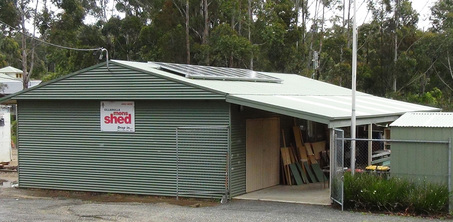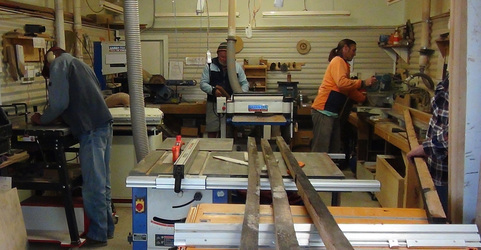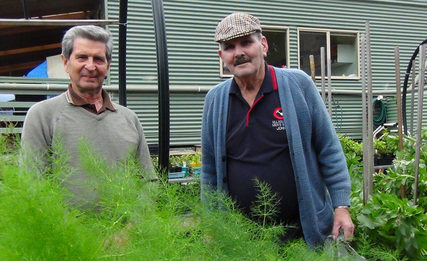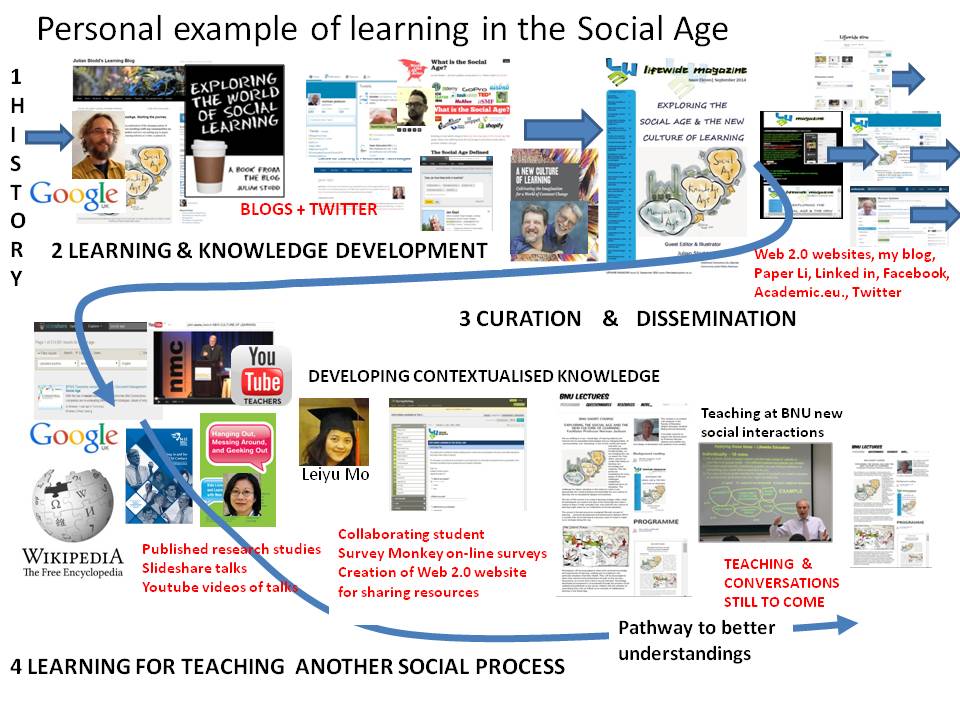
To say I have a soft spot for PDP would be an understatement. Back in 1998-99 while working at QAA I facilitated the process of developing the policy framework for PDP. What I learnt through practitioners and my subsequent research convinced me of the value of linking a set of interconnected activities and experiences that included:
- thinking ahead and deciding what to do – analysing tasks, identifying goals, creating strategies to achieve objectives; using reflection – drawing on past experiences and imagining a different future
- doing / producing things broadly in line with planned intentions but being responsive to the effects of actions and changing plans if appropriate; learning through the experience of doing with greater self-awareness
- self-observing and recording - thoughts, ideas, experiences, actions and their effects, experiences, to develop a record of learning and to evidence the process and results of learning and support the enterprise of ‘learning about learning
- thinking about what was done and what was achieved in order to learn (reflecting, reviewing and evaluating; making sense of experience; making judgements about self and the effects of personal action and determining what needs to be done to develop/improve/move on; the enterprise also supports the process of learning about learning).
So it's with great pleasure that I am returning to thinking about PDP. What has changed in the last 15 years since PDP was introduced into UK HE is that we have now moved into the Social Age of collaborative learning and sharing. The Social Age is defined by the massive use of social media platforms that are changing behaviours and habits in respect of how we find, use, develop and distribute information and knowledge and create new meaning and understanding for ourselves and with others. It is being brought into existence as a result of the web 2.0 and web-enabling communication technologies and ever faster broadband, wifi, 3G + 4G technology that enable connectivity almost anywhere at anytime with infinite information resources, and personal knowledge residing within the personal learning networks we create for ourselves. Enhanced connectivity is at the heart of the Social Age might be defined in terms of 'the creation of value (knowledge, understanding [or learning] and relationships) by connecting individuals who want to share their interests, knowledge, passions who form a relationship to co-create new understandings.
I've not been a particularly fast adopter of these technologies but slowly and surely over the last few years I have tried out website building tools and various social media and gradually adopted, in a selective manner, the technologies that help me do what I need to do. In the process I have also decided against using some technologies, or using them in a selective way.

I like to think I have always been reflective and this has helped me learn from my experiences. I also think I've been reasonably good at imagining what I need to do in different contexts and developing strategies for achieving stuff. And I have worked out through experience that plans need to be fairly fluid to accommodate all the unexpected stuff that emerges through life. All this is internalised and for most things I don't need to sit down and make a plan on paper or formally write up a reflective report.
Throughout my career in many different professional my roles I have had to keep good records of what I have doing and plans of what I intended to do, and in the last 20 years of my career I went through annual appraisals of various sorts - many of which involved creating a narrative and filling out forms which asked the questions that managers wanted answered and did not necessarily tell the story in the way I wanted to.
I don't have to worry about this anymore, the only appraisal I go through is my own, and my wife's from time to time! Neither do I have to worry about building my cv anymore. But I am interested in developing my ideas and sharing them with others to see if they have value. As an educationalist I am trying to model my ideas and practices for lifewide learning and creativity so I do devote quite a lot of time exploring how my ideas relate to my own life believing that if I can't apply them in my own circumstances they can't be much good.
One thing that hasn't changed is that I prefer to write in word and upload to other technologies. I find the familiarity of word gives me the freedom and flexibility to express myself in ways that writing on-line does not.
The characteristics of my PDP are documented below
1 My PDP is all informal. It's what I choose to do, when I want to do it and how I want to do it. I have to make up the rules and frameworks I use they are not given to me. The fact that I don't have to jump through any hoops and the products are not being used to appraise or assess me, is quite liberating.
2 Its contextual. My PDP reflects the circumstances of my life and it being created in the context of my interest in lifewide learning and creativity - which is my work.
3 I have to motivate myself to do it because no-one else will make me. So my motivation is intrinsic, driven by my purposes which is to model the practices I would expect of a lifewide learner and my interest in developing and sharing ideas that emerge through this process. For PDP to be successful it has to serve a useful purpose and fulfil a need which might be defined in terms of interest in myself and how I relate to others, and an interest in the educational ideas that emerge through the process.
4 It requires discipline. There are times when I'm so busy that time for writing about my experiences and learning is squeezed out, but somehow you have to squeeze it back in again. This means I have to value the process and what emerges from it.
5 it's about building a narrative of the events in my life and how I respond to them. The overall value to me is in the development of my narrative over time and it matters to me and probably no-one else. It is I suppose a vehicle for creative self-expression in a medium (writing) that I enjoy. I also see that my writings can serve a number of purposes which is another source of motivation.
6 It is about learning about myself. To develop my ideas I have to keep thinking about things I have not previously given much thought to. What often causes these triggered reflections is the stuff I read in other people's blogs which provide a prompt that I can't resist. How do I find these? Well I spend a lot of time on google searching for things that interest me but also I discover much through the Personal Learning Network I have constructed using Twitter. I usually check my feeds daily, although I can go days sometimes without doing this, and if a tweet looks interesting I follow the link to see where it takes me. I have learnt so much through this process.
7 I have to admit that I have the time or rather I can make the time because by doing it I'm not able to do something else. But not having to go to work every day
8 I am using quite a lot of technology to help me record my experiences and musings. Thanks to the Web 2.0 Weebly website building tool I have my own website which hosts my blog and a suite of other websites to support my educational work. My basic approach is to write a blog usually about something that has happened or something I have come across that has caused me to evaluate myself. I try to write something every week. If I think the ideas and perspectives in my blog might be of interest to others I share them either through my two educational websites (lifewide education and creative academic) or Linked in or for work that actually becomes publishable - academia.ed. When my ideas have been developed sufficiently I might publish them in our on-line Lifewide Magazine. I share my blogs through my three twitter accounts which serve different purposes and audiences.

1 For me there is the aesthetic appeal of a nice looking website rather than the word document I use as a starting point for my commentaries and reflections. Populating my post with an image or video clip that is relevant and interesting enhances my thoughts and makes it visually more attractive.
2 Situating my blog within my own website enables it to be contextualised within my bigger narrative which is about who I am and what I am doing and where I have come from.
3 Because my blog is on-line I can hyperlink ideas to other resources which open alongside my post. This can be a useful enhancement to my own content or a navigational aid to other work I'm involved in.
4 By offering it on-line to anyone, people can also add their comments and ideas. If I want to I can send a link to a particular person or group.
5 Posting some of my blogs in my social enterprise sites allows me to contextualise my ideas and reflections in the bigger narrative of the ideas and practices that these sites support.
6 Posting selected blogs on LinkedIn places my thoughts within a professional work context. Furthermore, I can use my blog post to actively engage the LinkedIn groups I have joined. In this way it's a way of attracting people who are interested in lifewide learning or creativity in higher education, my too work themes. Because of my profile, two days ago I received a message from someone inviting me to apply for a position as leader of a Steiner School. I didn't want it but it illustrates that if you are active by posting blogs, you get noticed and new opportunities emerge.
7 Using Twitter to broadcast my blog posts enables me to attract new followers (people who are interested in my thoughts and what I am doing) and to contribute my personal knowledge to the social universe. I like to think that I am being connected to the Personal Learning Networks of the people who connect with me.
8 Generally, having a presence and traffic to my sites leads to new things. Only two weeks ago I was invited to undertake a writing and training assignment for a university in the middle east. The client found me through the internet and because of my activity they were able to judge that I would be a good person to invite.
9 I also love to see where people who read my blogs have come from by looking at the geographic maps that can be generated using stat counter I embed in my sites.
So those are some of the advantages of using web 2.0 / social media to support PDP practice, and that in a nutshell is my story of PDP in the Social Age of learning.

Two friends who are in my PLN - Chrissi Nerantzi and Sue Beckingham, have developed a framework to help us understand how social media can be used. Its called the 5C framework - communicating, connecting, collaborating, creating and curating. Descriptions of how I'm using social media to support my PDP I can see that I am engaged with all 5 of the C's. Firstly, my blog is all about communicating in words and images, my personal knowledge and insights to myself and to others who are interested. Connecting - I use my blog to connect ideas, link to resources and to connect to interested others. By posting on multiple sites and with forums like the special interest groups on LinkedIn, I expand the potential for people to connect to my ideas. Similarly I benefit from the connections I make in my PLN's and quite a few of my reflections have been triggered by the posts of others. Collaborating - this is probably the weakest aspect of my PDP practices although the topics of my reflections often make reference to the collaborations I'm involved in (such as my involvement with Hallam in this post). PDP for me is mainly a solitary practice although I could present a case that every idea I assimilate that triggers a reflection is a sort of collaboration and therefore many of my blogs are in fact co-created with the resources and ideas of others. Creating - my blog brings ideas and thoughts into existence that are new and original to me and I change my understanding through the writing process. The digital medium allows me to play with ideas and images in ways that I could never do before this technology was available. Curating - I am curating my narrative and my ideas for myself and because I am always trying to be resourceful I make use of my writing for multiple purposes. For example I intend to use an edited version of this article in the next issue of Lifewide Magazine. By posting in my thematic websites I am adding content to other curated collections. The one thing I would add is another C - commitment. All this does require sustained commitment and effort.
Why do I do it?
I left the big question until the end. I commit to engaging in PDP because I believe in its intrinsic worth. I also engage in PDP because of my professional interest in exploring and growing ideas from my everyday life and because it helps me to understand myself. I also do it because to be an active participant in the Social Age, sharing my personal knowledge and insights with anyone who is interested.
My PDP is an integral part of my learning ecology. For example this post is a personal inquiry, prompted by the forthcoming Hallam workshop, in order to gain a better understanding of what PDP practice means to me. My intention is to share this post with participants as part of the knowledge development process around the workshop.
Last but not least, the PDP practices I describe above is one of my outlets for creative self-expression. Furthermore, the new insight I have gained from this examination of my own PDP practices is to conclude that I use my PDP process not only to reflect on what I have done and make sense of my experiences, I use it to actively explore new ideas and things I haven't thought about before. That is why it is such an important part of my ecology for learning and developing.
If you would like to share your ideas and practices relating to PDP please leave a comment.
Sources
Nerrantzi, C. and Beckingham, S. (2014) Our Magical Open Box to Enhance Individuals' Learning Ecologies. Chapter 2 In N.J.Jackson and J. Willis (eds) Lifewide Education in Universities and Colleges
http://www.learninglives.co.uk/uploads/1/0/8/4/10842717/chapter_c2_revised.pdf
QAA (2009) Personal development planning: guidance for institutional policy and practice in higher education Available on-line at: http://www.qaa.ac.uk/en/Publications/Documents/Personal-development-planning-guidance-for-institutional-policy-and-practice-in-higher-education.pdf
Stodd,J. (ed) (2014) Exploring the Social Age and the New Culture of Learning. Lifewide Magazine Issue 11 Available on line at http://www.lifewidemagazine.co.uk/









 RSS Feed
RSS Feed